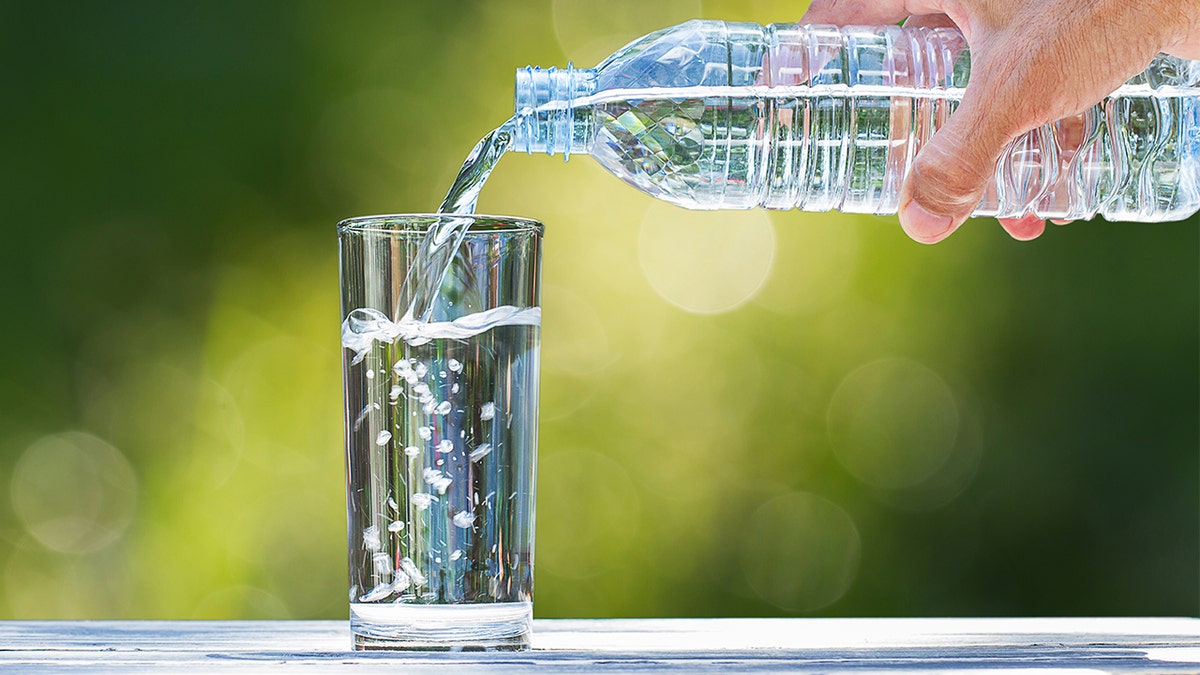
Water-fasting is a dangerous new diet fad that can have deadly consequences (iStock)
It would not be the end of one year and the start of another without an influx of diet tricks and tips to help us undo the sins of the Christmas season.
Over a number of years we have seen some pretty dodgy diets, yet new diet trend “water fasting” takes the cake when it comes to winning the prize for the worst diet ever. Not only is it actually dangerous for some, the chance you will actually lose a significant amount of weight and keep it off is slim to none.
Water fasting, which is consuming nothing but water for several days or weeks at a time, is not a special diet — it is starvation.
Unlike intermittent fasting regimes in which dieters commit to an extended number of hours without food — a specific regimen which is scientifically proven to have a number of metabolic benefits — prolonged starvation regimes offer no such benefits.
Water alone contains no calories or vitamins and very low levels of minerals. While a short period in which no calories are consumed (24 hours or less) can see dieters reunited with their natural hunger and enjoying an initial drop on the scales as the body’s fuel stores are used, this initial perceived success is short-lived.
After the initial 24-48 hours of no calories, not only are the fuel stores of glycogen in the muscles depleted, but over time metabolic rate will slow to help manage with the fuel shortage. This is why dieters may describe feeling light and euphoric initially when using a strict fasting regimen, but over time this effect will be replaced with fatigue, hunger, an inability to concentrate and general lethargy.
As very few minerals are being consumed, along with no proteins, essential fats or vitamins, the body’s systems and organs that require a steady stream of fuel and key nutrients are forced to rely on stored fuels or further reduce metabolic rate to continue to function.
The digestive system will slow, and there is increased pressure on the body’s cells and organs to function without the petrol they need to be operating optimally.
Starvation diets are especially dangerous for those dealing with blood glucose regulation issues such as type 2 diabetes, insulin resistance, hypoglycaemia and impaired glucose tolerance as well as a range of medical conditions that require specific medications. They can cause fainting, irregular heartbeat, dizziness and confusion.
It is for this reason that medical opinion should always be sought prior to starting any kind of diet when you are also managing medication and various medical conditions.
Of most interest is the effect of prolonged water-only fasting on the metabolism, and our ability to lose and maintain weight loss long-term. As we age, generally speaking our ability to burn calories reduces, as we lose muscle mass and our cells become less efficient. It is for this reason that weight-bearing activity is promoted as a way to increase metabolic rate, in order to build more muscle cells and get the muscle cells we have working as efficiently as possible.
When we seek out weight loss via starvation, there is a significant amount of muscle mass that will be gradually broken down to be used as fuel. For those who have plenty of pounds to lose, the negative impact on our metabolism will be not immediately felt, simply as we have more body tissue to buffer the reduction in metabolic rate. On the other hand for those seeking relatively small amounts of weight loss, just 10-25 pounds, reductions in metabolic rate via starvation diets are often what prevent us from reaching our weight loss goals.
While we may lose a couple of pounds initially, over time a reduction in metabolic rate sees our weight loss slow the longer we diet. This explains why so many of us lose weight initially, but this weight loss does not continue as we are expecting it to.
Weight loss is the most commonly cited health-related goal, yet few of us ever achieve the weight losses we are seeking, or keep it off long term.
In one respect, this is because weight loss is hard and takes time, but it is also often because we seek out weight loss using strict diets that are not sustainable.
Any diet that seems too good to be true generally is, and when it comes to a water fast you’re dealing with the worst of the worst and one to keep well clear of.








































